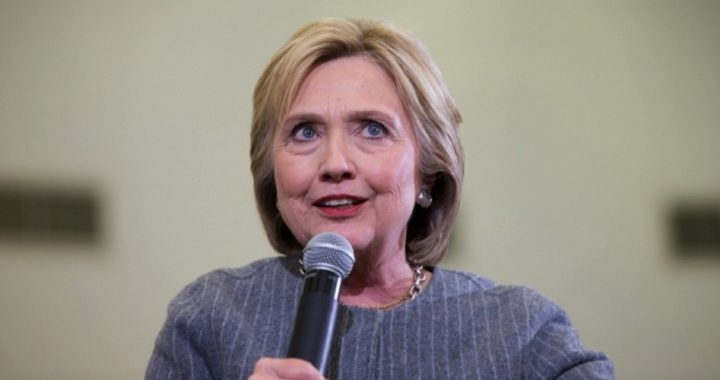
An integral part of nonpartisan congressional oversight is the Office of Inspector General. Inspectors general are appointed by the president and serve a critical role in independent investigations into government operations. The Office of Inspector General (OIG) serves a key role in independent investigations ensuring mandatory policies are being followed, investigating fraud and abuse allegations, and monitoring communications procedures. Policies and procedures that would prevent a secretary of state from using an outside personal e-mail server to communicate sensitive and classified government information are a good example of OIG responsibilities.
From the State Department’s Office of Inspector General website:
… Additionally, OIG performs specialized security inspections and audits in support of the Department’s mission to provide effective protection to our personnel, facilities, and sensitive information. OIG also audits Department and BBG operations and activities to ensure that they are as effective, efficient, and economical as possible. Finally, OIG investigates instances of fraud, waste, and mismanagement that may constitute either criminal wrongdoing or violation of Department and BBG regulations.
In 2013, John Kerry was still getting settled into his new role as secretary of state, having taken over for the departing Hillary Clinton on February 1 of that year. On February 4, House Foreign Affairs Committee Chairman Ed Royce (R-Calif.) and ranking Democrat Eliot Engle (D-N.Y.) sent him a letter. Stated the Foreign Affairs Committee:
For more than five years, since January 16, 2008, the Department [of State] has lacked a presidentially-nominated, Senate-confirmed Inspector General. That gap of more than 1840 days is the longest vacancy of any of the 73 Inspector General positions across the federal government. While this would be problematic under any circumstances, the repeated criticisms of the independence and effectiveness of that office by the Government Accountability Office (GAO) heighten the need for an appointment.
Put succinctly, the very office whose job it was to monitor things such as former Secretary of State Hillary Clinton’s use of a private e-mail server to communicate what is now appearing to be countless documents classified at the highest level had no presidentially appointed inspector. Again, there was no inspector for Hillary Clinton’s entire tenure as secretary of state. President Obama’s decision not to appoint an IG to the office of secretary of state for a five-and-a-half-year period was the longest gap in an Inspector General office to date. It was a vacancy the Foreign Affairs Committee knew should not have occurred and that needed to be rectified as soon as possible.
Howard J. Krongard served as the Inspector General monitoring the State Department from 2005 to 2008. In recent statements, Krongard held that Hillary Clinton’s use of a private server for virtually all of her work and communications in her role as secretary of state was neither an accident nor an oversight. Rather, claimed Krongard, “It’s clear she did not want to be subject to internal investigations.” Krongard believes the choice Hillary made not to set up the state.gov e-mail address was an intentional, premeditated decision.
The Harvard-educated Krongard pointed out that from her first day in office, Clinton never requested the state.gov email address to be set up as secretaries of state before her had done. “That’s a change in the standard. It tells me that this was premeditated. And this eliminates claims by the State Department that they were unaware of her private e-mail server until later,” Krongard said in an interview with the New York Post. “How else was she supposed to do business without e-mail?”
SIPRNet is the State Department’s classified network for the exchange of e-mail and other information. As such, it is the system Hillary Clinton should have been using in her role as secretary of state. As defined by the Defense Human Resources Activity website, “The Secret Internet Protocol Router Network (SIPRNet) is the Department of Defense network for the exchange of classified information and messages at the SECRET level.” At issue is how information got from SIPRNet to Hillary Clinton’s private server to begin with.
Said Krongard, “The starting point of the investigation is the material going through SIPRNet. She couldn’t function without the information coming over SIPRNet. How did she get it on her home server? It can’t just jump from one system to the other. Someone had to move it, copy it. The question is who did that?” At issue here is U.S. national security and a massive breach of protocol by a secretary of state.
Someone, possibly Hillary herself, may have transfered sensitive government data in a method as insecure as a simple thumb drive, a method which would amount to a massive security breach. Another possibility now being investigated by the FBI is that staffers copied top-secret information from the department’s classified network to its unclassified network, and finally summarized the material in e-mails then sent to Clinton’s unsecured and unencrypted e-mail account.
Three of Clinton’s top department aides are now under intense examination by the FBI. Hillary’s chief of staff Chery Mills, as well as deputy chiefs Huma Abedin and Jake Sullivan, seem to have sent the vast majority of the 1,340 e-mails deemed classified by intelligence agency reviewers. These three are now facing “enormous pressure to cooperate.” However, as Krongard stated, the three have stayed close to Hillary Clinton and now hold elevated positions in her presidential campaign. This fact makes it look doubtful they would be willing to be forthcoming during the investigation.
For his part, Krongard does not believe Hillary will see an indictment. He feels the four loyal women the investigation would have to go through are simply too much: Assistant Attorney General Leslie Caldwell, who heads the department’s criminal division; Deputy Attorney General Sally Yates; Attorney General Loretta Lynch; and top White House advisor Valerie Jarrett. Even if they were to accept a referral, Krongard believes it would quietly end up being plea-bargained down to a slap on the wrist.
Right now, Hillary Clinton is running neck-and-neck with Bernie Sanders for the Democrat party nomination for president. Although Clinton has continued to hide behind “unaware,” “didn’t know,” and “wasn’t marked that way at the time,” her excuses are beginning to look as flimsy as her husband’s infamous definition of the word “is.” As The New American stated in a previous article, Hillary’s campaign is now “in full ‘damage control’ mode. If it is determined that any of the classified information she sent or received was marked that way at the time she sent or received it, her veneer-thin excuses will crumble at a rate faster than that of her campaign.”
As Hillary Clinton continues her presidential bid as if nothing troublesome or untoward has occurred, the wheels of justice continue to grind. As reported by The New American, former U.S. House Majority Leader Tom DeLay has made statements recently claiming his contacts in the FBI are ready to seek an indictment against Clinton. The question remaining is whether or not Hillary will have to answer for flagrant decisions to ignore vital security protocols or will it be “politics as usual” and nothing but a small bump in the road on her travels toward the White House.
Photo: AP Images



